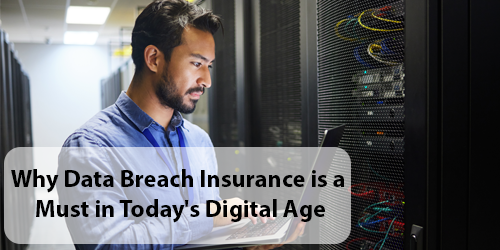The modern business landscape is inseparable from its digital components, from data storage to customer interactions. Yet, this digital integration comes with elevated risks, namely data breaches that can have severe implications for any business. Data breach insurance, or cybersecurity insurance, serves as a fundamental line of defense against the financial and operational ramifications of these risks. This insurance product provides robust coverage to help businesses navigate the complexities arising from data breaches and other cyber-related incidents.
What is Data Breach Insurance?
Defining the Concept
Data breach insurance is a specialized form of coverage that mitigates financial risks associated with cyber events. It offers financial support to cover:
- Legal representation
- Notification costs for informing affected stakeholders
- Public relations initiatives aimed at reputation restoration
- Forensic services to investigate the breach
This form of insurance has evolved as a response to the increased frequency and complexity of cyber-attacks, becoming a critical part of risk management strategies for modern businesses.
Why is Data Breach Insurance Important for Businesses?
The Prevalence of Cyber Risks
According to cybersecurity reports, data breaches have seen a consistent uptick in both frequency and severity over the past few years. Given this escalation, the lack of a comprehensive cybersecurity insurance policy can place businesses in a precarious position. Here are some reasons why data breach insurance is indispensable:
- Financial Resilience: Data breaches often come with staggering financial implications, from legal proceedings to customer settlements. Data breach insurance offers the financial support required to navigate these expenses.
- Reputation Management: The long-term success of any business is tied to its reputation. A single data breach can irreparably damage a business’s standing. Data breach insurance often includes coverage for public relations efforts aimed at restoring public trust.
- Operational Continuity: Data breaches can interrupt regular business operations. A data breach insurance policy can cover the costs associated with business interruptions, ensuring organizational resilience.
What Does Data Breach Insurance Typically Cover?
Components of Coverage
A standard data breach insurance policy may cover a multitude of components essential to crisis management:
- Legal and Regulatory Expenses: Legal fees, fines, and penalties imposed by regulatory bodies are usually covered.
- Notification and Credit Monitoring: Insurance often covers the costs of notifying affected parties and providing them with credit monitoring services.
- Crisis Management and Public Relations: Specialized services aimed at damage control and reputation management are generally included.
- Incident Response and Forensic Services: Investigation costs to determine the cause and extent of a data breach are covered.
How Much Does Data Breach Insurance Cost?
The cost of data breach insurance can vary significantly based on factors such as the size of the company, the industry in which it operates, and its cybersecurity posture. However, considering the potential financial and reputational damage stemming from a data breach, the cost of insurance is often justified as a necessary business expense.
What are the Alternatives to Data Breach Insurance?
While other cybersecurity measures like firewalls, encryption, and employee training are crucial, they are not substitutes for data breach insurance. These protective measures, although important, have limitations and cannot offer the financial indemnification that a comprehensive insurance policy provides.
Conclusion
In summary, data breach insurance is an indispensable tool in the risk management arsenal of any modern business. It offers financial stability, contributes to reputation management, and assures operational continuity in the face of cybersecurity incidents. If you are considering purchasing insurance or already have an existing policy, adding data breach coverage is highly advisable. For the most current and personalized information, consult with your insurance agent.
Note: Insurance policies are subject to variations and updates. Always consult with your insurance agent for the most accurate and personalized information.
Disclaimer: The information presented in this article is for educational purposes and should not replace professional financial or legal advice.


